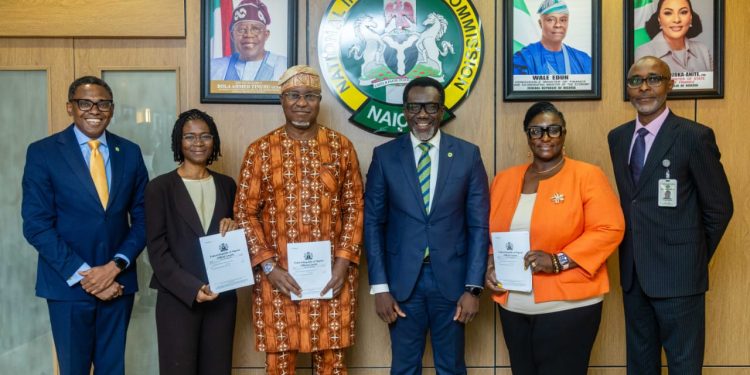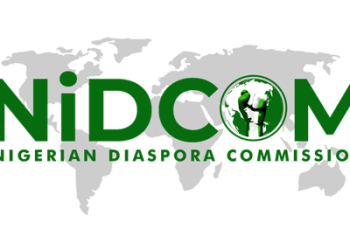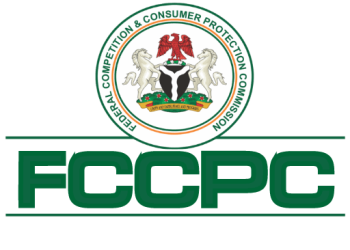By Nkechi Eze
The National Insurance Commission (NAICOM) has taken a bold step toward transforming Nigeria’s insurance industry with the formal unveiling of the implementation framework for the National Insurance Industry Reform Agenda (NIIRA) 2025, signalling a renewed commitment to reposition the sector for transparency, innovation, and inclusive growth.
At a high-level strategy meeting held on Tuesday in Abuja, the Commissioner for Insurance, Mr. Olusegun Ayo Omosehin, inaugurated three core working groups to lead the structured execution of NIIRA’s objectives across the entire insurance value chain.
The NIIRA 2025, which was signed into law earlier this year, outlines a comprehensive roadmap for regulatory reforms, financial inclusion, compulsory insurance enforcement, and digital transformation. Its full implementation is expected to align Nigeria’s insurance industry with international best practices while enhancing economic resilience, public confidence, and risk protection across sectors.
Speaking during the strategy session, Mr. Omosehin reaffirmed NAICOM’s determination to ensure that the implementation phase of NIIRA 2025 is inclusive, data-driven, and results-oriented. He described the initiative as a transformative journey aimed at creating a stronger and more transparent insurance ecosystem that supports national economic growth. According to him, “This marks the beginning of a coordinated journey toward achieving a stronger, more transparent, and technology-driven insurance industry. The NIIRA 2025 is not just a regulatory document—it is a blueprint for building an insurance sector that protects lives, businesses, and investments across Nigeria.”
He emphasized that the newly inaugurated working groups will act as engines of reform, ensuring that critical policy objectives are effectively translated into measurable outcomes. The Commissioner explained that the first of the three groups, the Compulsory Insurance Working Group, is chaired by Mr. Shola Tinubu and mandated to strengthen the enforcement and adoption of compulsory insurance schemes nationwide. These include Motor Third Party, Builders Liability, Group Life, Professional Indemnity, and Public Buildings insurance. The group’s focus is to improve compliance, enhance public awareness, and collaborate with relevant federal and state agencies to ensure adequate policyholder protection.
The second group, known as the Digitization Working Group, chaired by Mrs. Adetola Adegbayi, is responsible for driving digital modernization across the insurance regulatory framework. The group’s objectives include improving transparency, operational efficiency, and data integrity, while expanding accessibility to insurance products through digital platforms and mobile technology. It will also implement the key digital transformation provisions contained in Sections 19–20 and 128 of the NIIRA 2025, which are designed to create a more agile, automated, and customer-centric insurance environment capable of leveraging technology to deepen market penetration and build consumer trust.
The third group, the Financial Inclusion Working Group, led by Dr. Yeside Oyetayo, is tasked with expanding insurance penetration, particularly among underserved and low-income populations. Its focus areas include deepening microinsurance and takaful outreach, fostering collaboration with the Central Bank of Nigeria (CBN), development partners, and fintech firms, and implementing inclusive policy frameworks that ensure equitable access to risk protection. The group’s expected outcome is to bring more informal sector participants into the insurance net, thereby contributing to national financial inclusion goals and household economic resilience.
Mr. Omosehin commended the stakeholders for their dedication and expressed confidence that the establishment of these working groups would accelerate industry-wide reforms. He stressed that the success of NIIRA 2025 depends on shared responsibility and collaboration among regulators, operators, and consumers, adding that “This strategy represents a shared responsibility to deliver results that will redefine the perception and impact of insurance in Nigeria. We must all see ourselves as partners in national development.”
Senior management officials from NAICOM also underscored the importance of effective communication, measurable benchmarks, and consistent stakeholder engagement. They assured that the Commission will continuously monitor progress, publish regular updates, and ensure accountability throughout the implementation process.
The unveiling of the NIIRA 2025 Implementation Strategy marks a significant milestone in Nigeria’s insurance reform agenda. Anchored on transparency, innovation, and inclusion, the framework represents a unified and forward-looking approach to repositioning the industry. With clear structures in place and empowered leadership driving reform, NAICOM has reaffirmed its resolve to strengthen the insurance sector’s contribution to national economic development.
The event concluded with renewed optimism and a shared sense of purpose among participants as NAICOM reaffirmed its commitment to steering the insurance industry toward a more resilient, inclusive, and technology-driven future.















